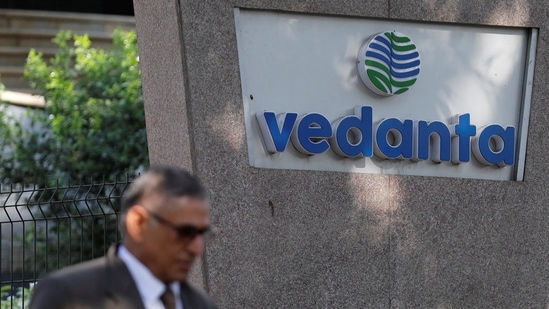Aug 08, 2024 06:27 PM IST
The Anil Agarwal-led Vedanta had been working with advisors to sell its steel business to raise around $2.5 billion for reducing the company’s debt load
Vedanta Ltd has put plans to sell its steel business on hold because a $1 billion share sale gave the company increased breathing room for managing its debt, the Bloomberg reported, citing unnamed sources. HT couldn’t independently verify the information. The company may look to sell the steel business later, the report added.

Also Read: US judge rejects Byju’s US lender GLAS Trust’s effort to stop payment to BCCI
Why did Vedanta plan to sell its steel business?
The Anil Agarwal-led Vedanta had been working with advisors to sell its steel business, which includes iron-ore and manganese mines, to raise around $2.5 billion for reducing the company’s debt load, according to the report.
However, Vedanta’s fundraise through a share placement last month ended up cooling some debt pressure and thus, reduced the need to sell the steel business.
Despite this, a Vedanta representative told the Economic Times that the company would still consider selling the steel business at the right price.
Vedanta entered the steel business by purchasing a 90% stake in ESL Steel Ltd in 2018. The company had operations in Bokaro, Jharkhand. The plan to sell it came after Vedanta’s board approved a plan last year to split the conglomerate into six different companies.
How much debt does Vedanta have?
Vedanta’s net debt was ₹61,320 crore at the end of the first quarter of the financial year 2024-25, which was up by 8.8% from the previous quarter, according to the report.
Also Read: Godrej Industries increases hiring and introduces new policies for talent retention: Report
Environmental and regulatory concerns acted as a deterrent to potential buyers of the steel business, the report added. The Organized Crime and Corruption Reporting Project published an investigation report last year, claiming that Vedanta lobbied the government for weakening important environmental regulations during the Covid pandemic.


